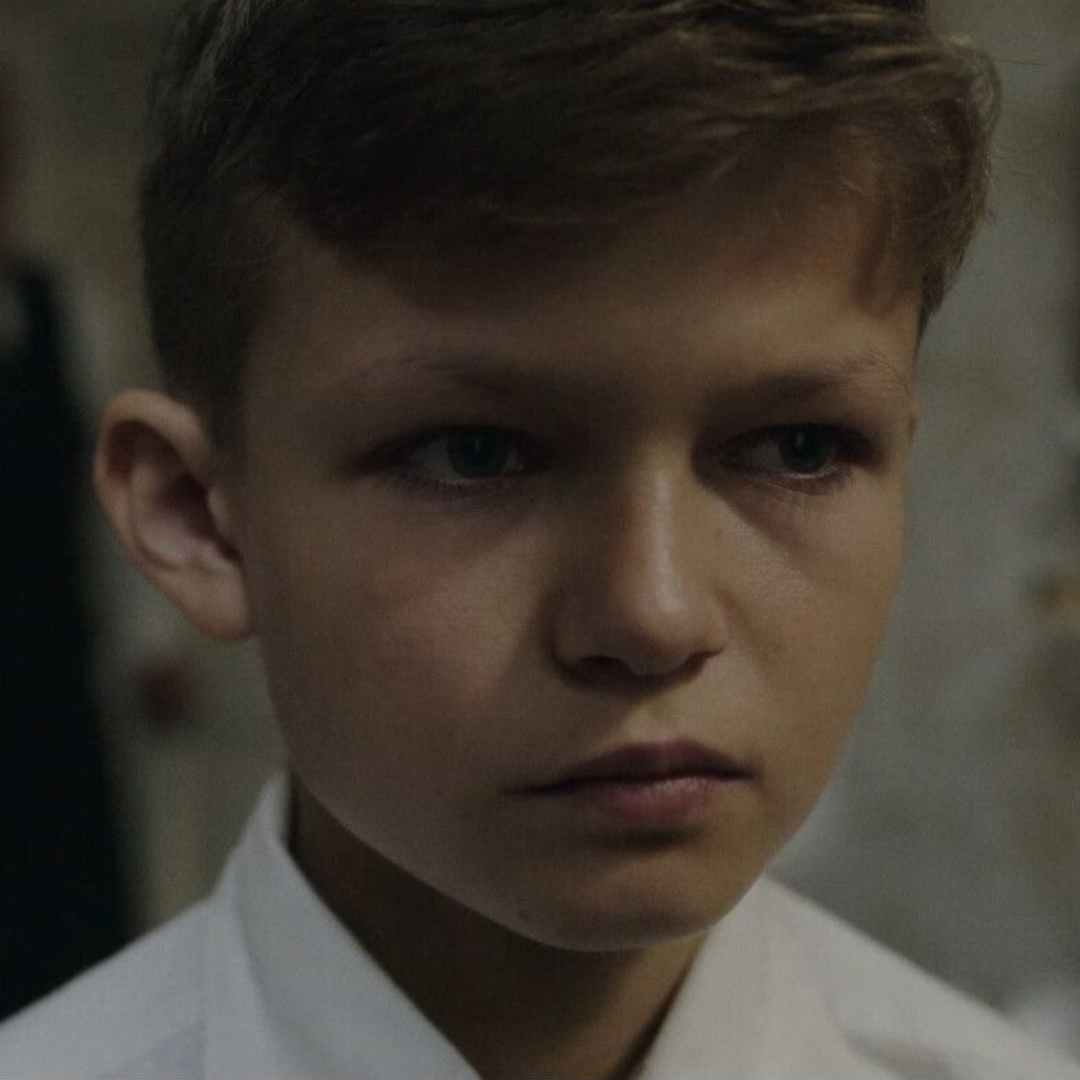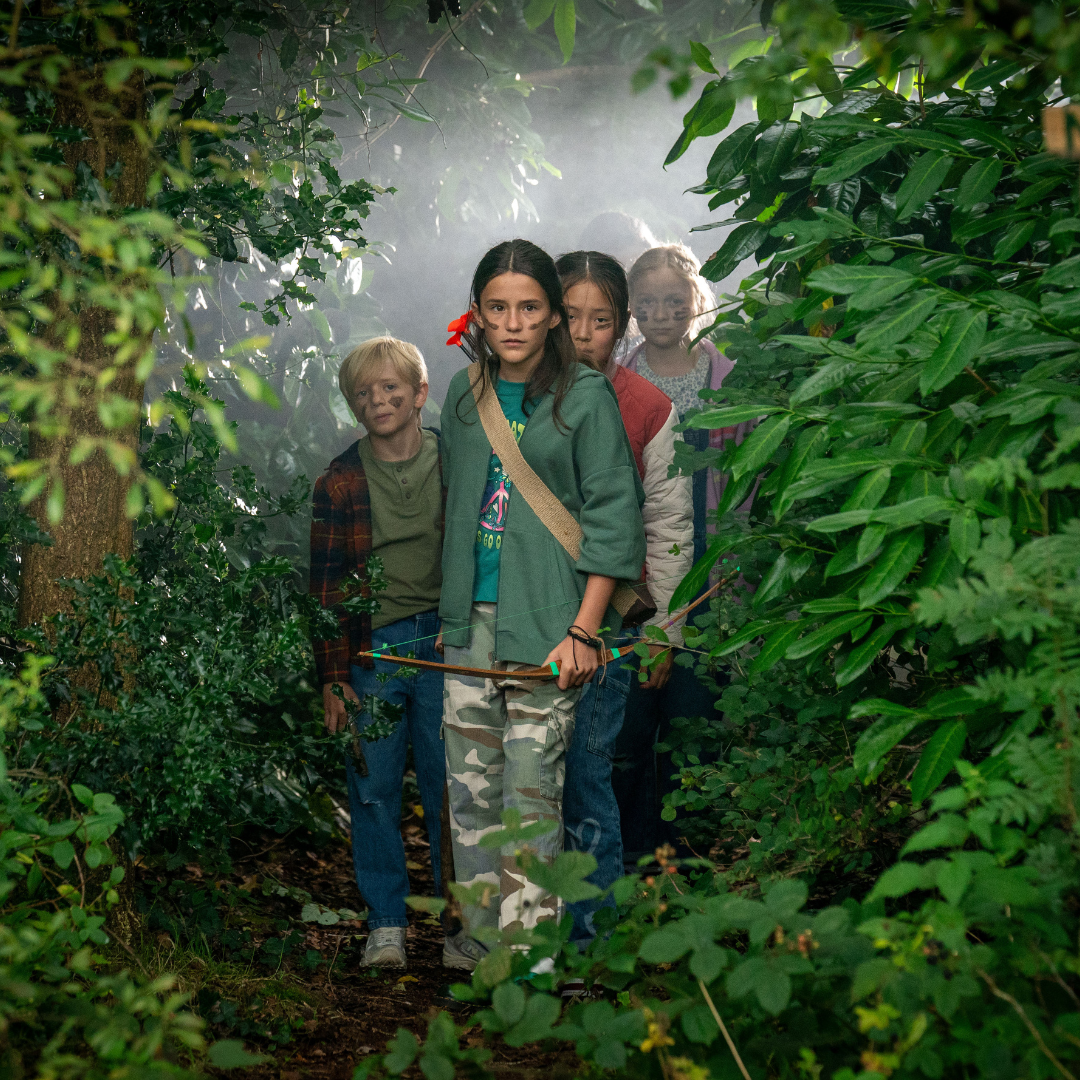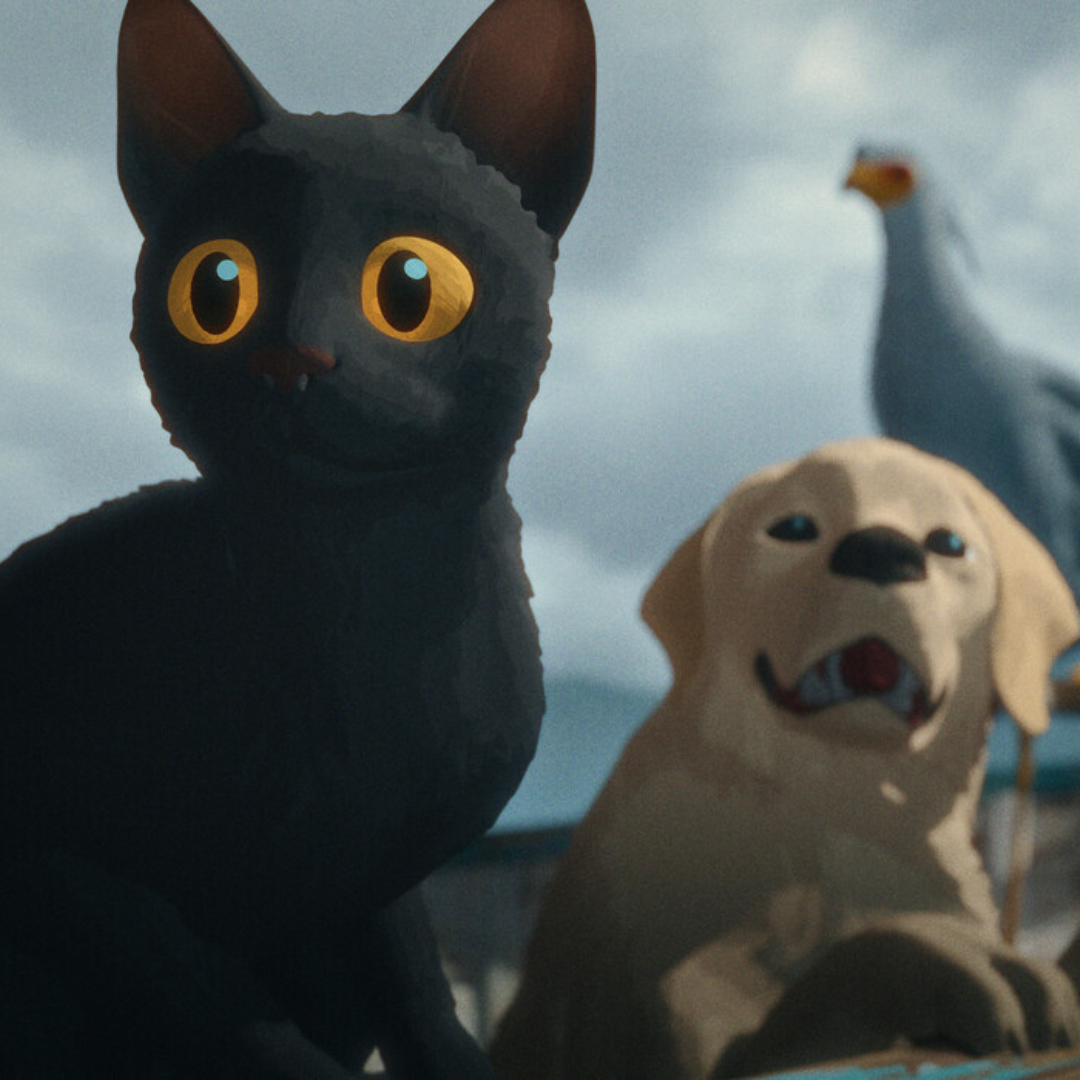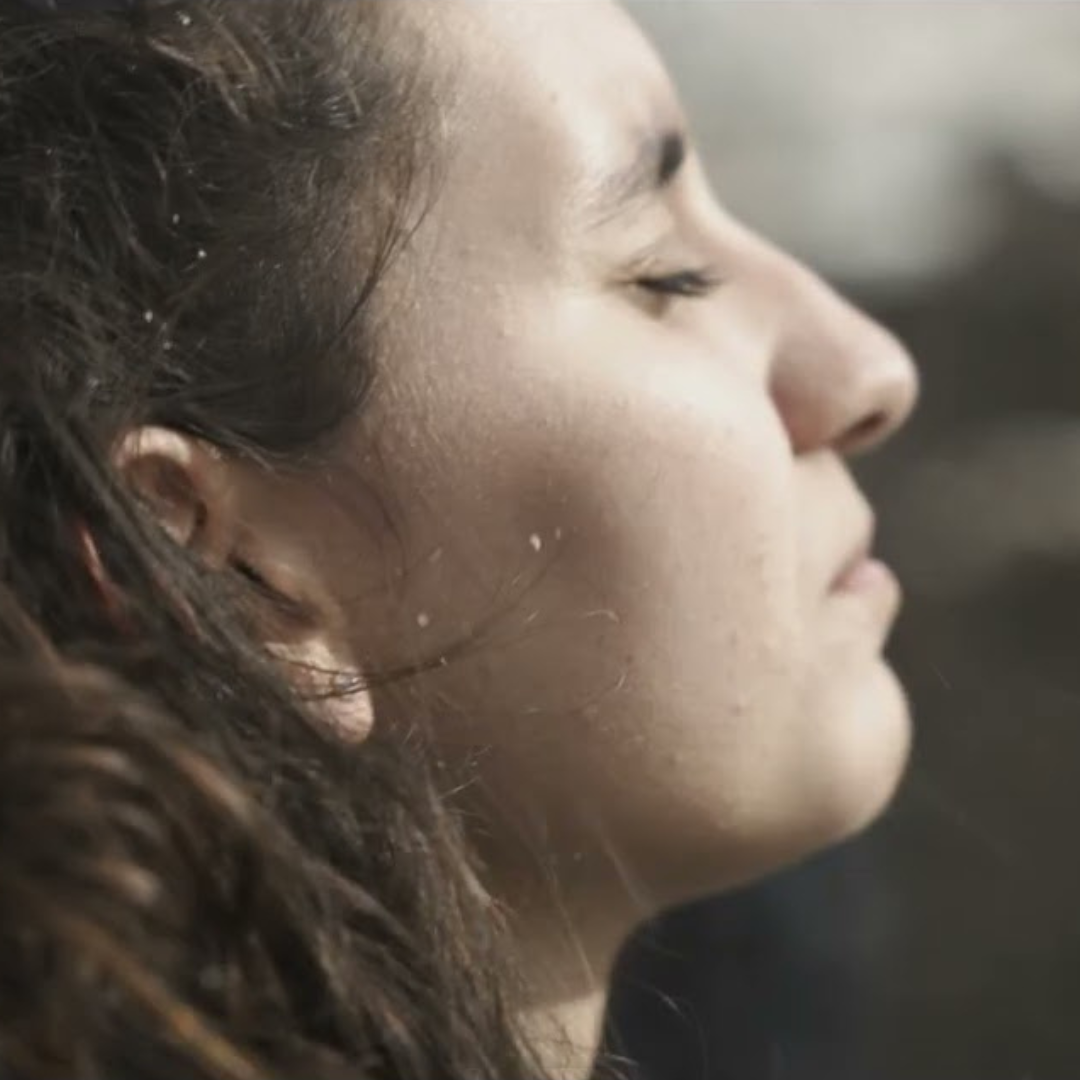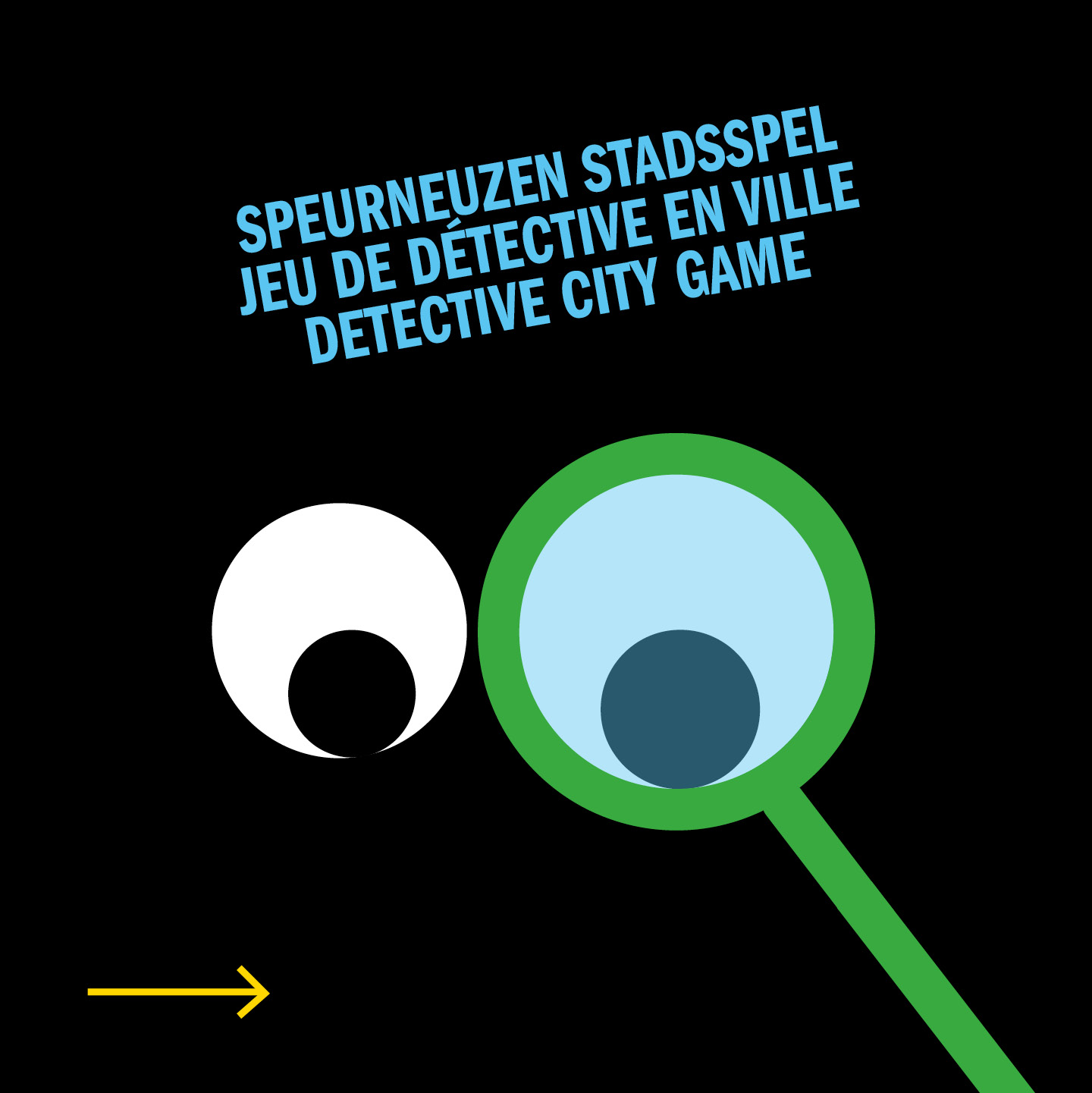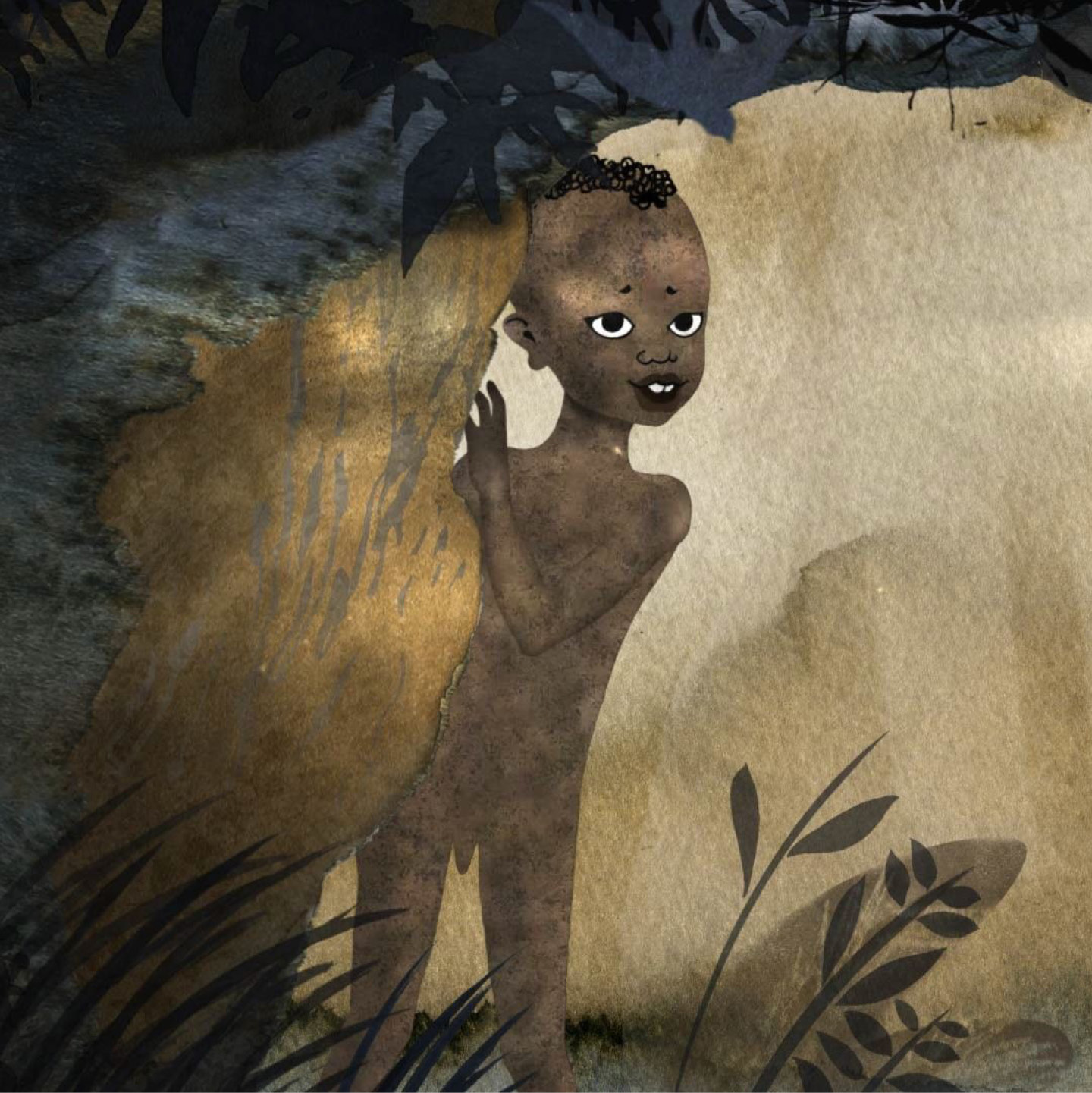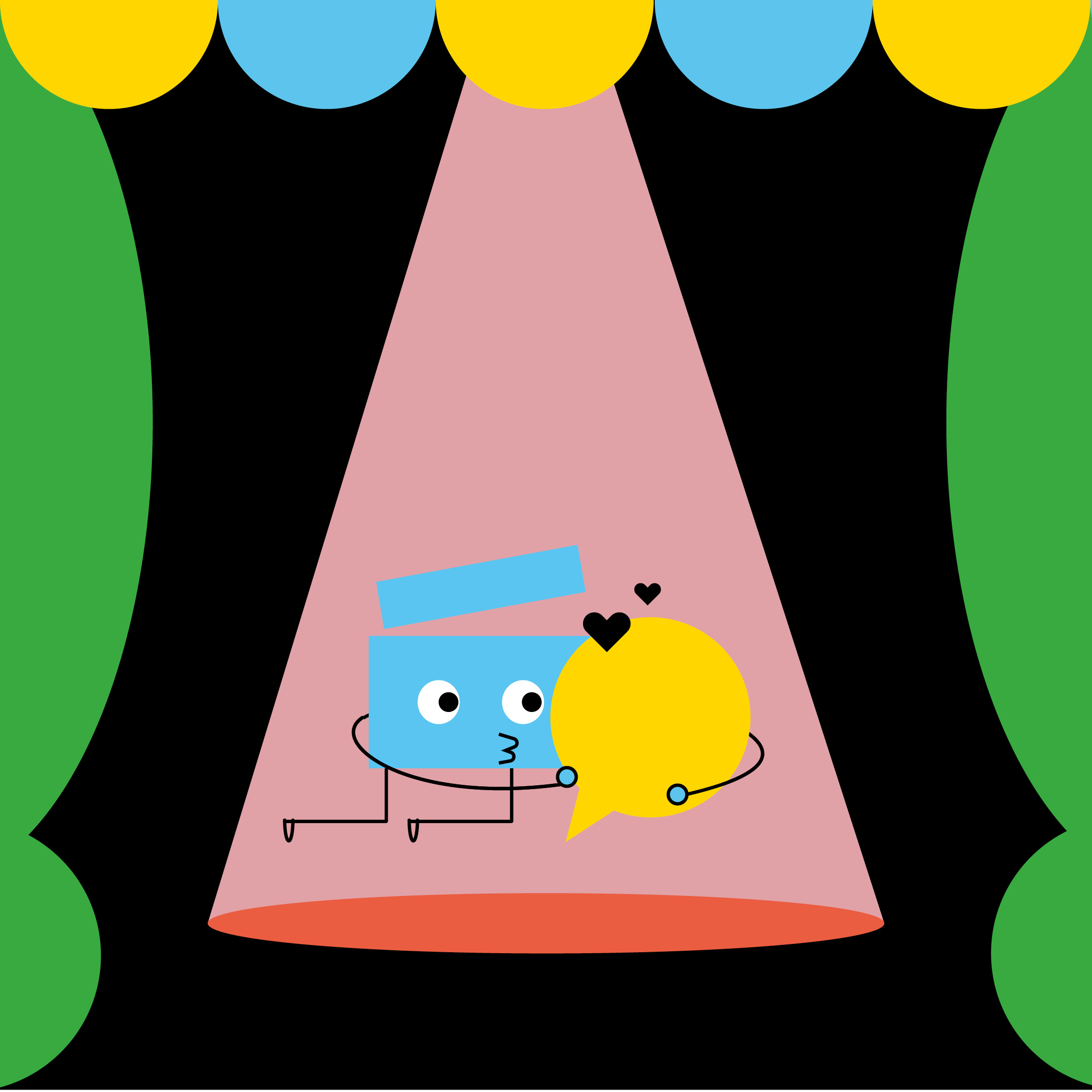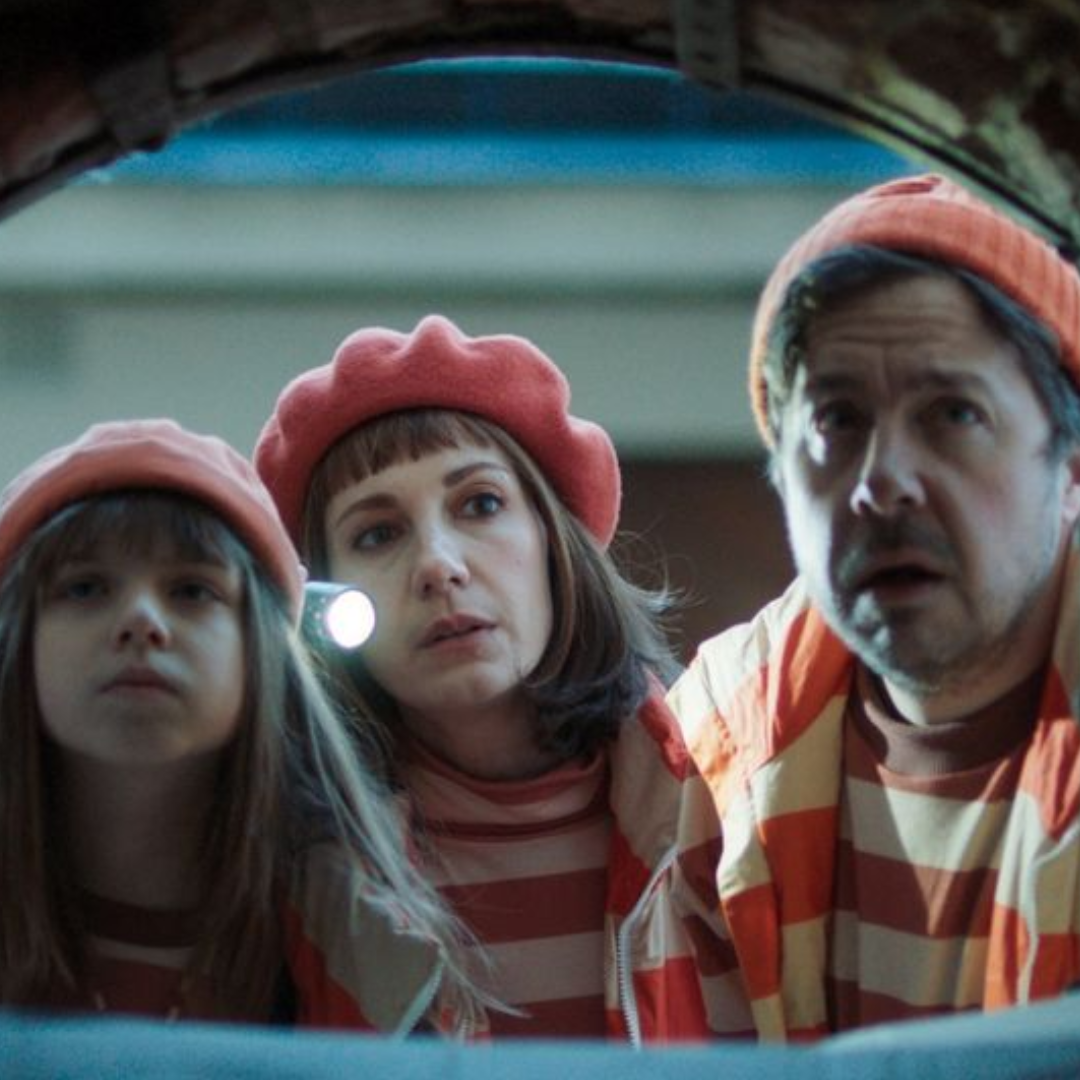
“The norm in society but the odd one in the family”
The Pinchers are a good-hearted family of thieves. At the urging of their son Ture, the family is trying to turn their lives around – become honest and abide by the law. But living an honest life can be so boring, and things get complicated when Ture is falsely accused of stealing a dog. Pursued by a suspicious policeman and scary twins, the Pinchers wonder if they should make one final move. Swedish director Leif Lindblom – who based his film on a popular series of children’s books – was a guest at the Filem’On Festival. In his director’s statement, he claims that “in a somewhat upside-down world, we twist and turn moral concepts, and look at them from another angle.”
Leif Lindblom: In Sweden, every year in early December, a new TV-series starts; one episode per day, all the way up til Christmas. It’s a popular family thing. One day the Pinchers’ books were sent to me for that series, and it got me hooked immediately. Anders Sparrin’s script was so clear and transparent. He has a strong intuitive feeling for cinema. When he found out that I have a background in moral philosophy, he was like: “maybe I should study some of that too…” Because he wrote the script, not even thinking about moral dilemmas, but solely focusing on the storytelling.
His story puts the world kind of upside down.
Leif Lindblom: The Pinchers are a criminal family, that’s in their nature. But in their view, there’s good thieves and bad thieves. That’s why Ma Pincher calls the dog-kidnapper “not like us, she’s bad.” They don’t steal directly from people. If you’re stealing a tiara from Farah Diba, the wife of the former shah of Persia – who amassed his wealth at the expense of his citizens – then it’s hard to say who you are stealing from. Breaking with their life of thievery, would make them feel miserable. This is how they have lived for generations.
Did this ever provoke reactions from the audience?
Lindblom: The Swedish television warned us to be prepared. Prime time television usually raises some critics, but there were almost none. One woman wrote a newspaper essay, comparing the series with the New Testament. And she was deadly serious. Probably the audience understood that the Pinchers aren’t bad people, they don’t harm anybody, they don’t steal personal belongings. Except father Pincher stealing the policeman’s morning paper every day.
Can I compliment you for naming that man… Paul Isman?! The Pinchers’ son Ture doesn’t like the family’s way of living. He wants them to live an honest life.
Lindblom: Ture assumes he always acts correctly. He doesn’t lie, he doesn’t steal… But even his morals are tested when the life of his best friend – the dog – is at stake. Ture is the norm in society but the odd one in the family. He does what society considers morally correct. The family, on the other hand, breaks the laws, but they’re trying hard to become better persons. They go into group therapy to learn how to go against their nature. Ture’s little sister feels sick, simply because she can’t steal.
That’s where your background as a former student of Moral Philosophy comes in.
Lindblom: Ture’s sister tells him: sometimes you have to do things that seem wrong at the time, but are actually right. That is the big lesson for Ture to learn. He feels secured by what society dictates, without further questions. But morals can change, and right or wrong are not always that obvious. You also have to reflect on yourself. Otherwise we’ll end up in a dangerous society.
I suppose the film’s art design originates from the books, playing around with traditional crime fantasies. But for the movie and TV-series, you had to create a physical version of it.
Lindblom: The story is set in 2024, but I imagined a scenery from the late 60s, early 70s, as if the world had taken a different, alternate path somewhere back in time, with criminals committing only harmless crimes. Their striped costumes are like casual versions of prison suits. Most of the time the actors were freezing their ass off because the story is set in summer, but we filmed in winter time. And there are no mobile phones, because that would change the entire conflict. That felt very liberating.
Regardless of their criminal nature, the Pinchers’ house radiates a warm and cosy family atmosphere.
Lindblom: If you’d take a closer look, you’ll see that objects don’t match. Because it’s all stolen goods. All houses in that neighbourhood look the same, and the Pinchers live a similar kind of life… with a slightly different lifestyle.
What is your personal background in crime?
Lindblom: I grew up in a town that had the highest crime rate in the entire country.
Due to you?
Lindblom: No! In the early seventies, the neighbourhood was a notorious crime hotspot, and it still is. But the violence nowadays has escalated completely. When a gang cannot kill a rival in a gunfight, they go to his house and kill his mother and sister. Sweden has the highest rate of gun violence in Europe. THE PINCHERS reflects on morality, but today in crime, all moral boundaries are blurred.
Where do those creepy twins come from?
Lindblom: In the casting, these two came and took their moment. When they were acting out how to push someone down the stairs, I was laughing out loud. That’s a sign that it works. I found inspiration for these unsettling characters in my favourite horror movie, THE SHINING. I’ve put a lot of Stephen King into this film. Like the balloon. It was so obvious for me it should be red!
It all adds to the film’s absurdist comic tone.
Lindblom: When doing comedy, you always think you can do better. Because you can not rationally explain what makes a scene funny. Sometimes you can feel it, but then you don’t know exactly how you got there. For me the recipe is to tone it down. You have to convince the actors to play straight-forward, as grounded as possible. Don’t try to act funny.
Was that also your advice for the dog?
Lindblom: The trainer promised to prepare the dog for all required scenes. And she did. But once we started filming, with the crew standing around, the dog just looked at us, wondering why it suddenly got quiet on set and why there was this strange tension in the room. I was like: Who does he think he is? Marlon Brando, grinning into the camera? There were many tricks that he refused to perform, and we never managed to capture them on film. Moreover, he had a very strong bite. Every time he took an object in his mouth, it broke. Even the rat did everything right, because rats simply don’t care, but dogs…
Jef De Bock
